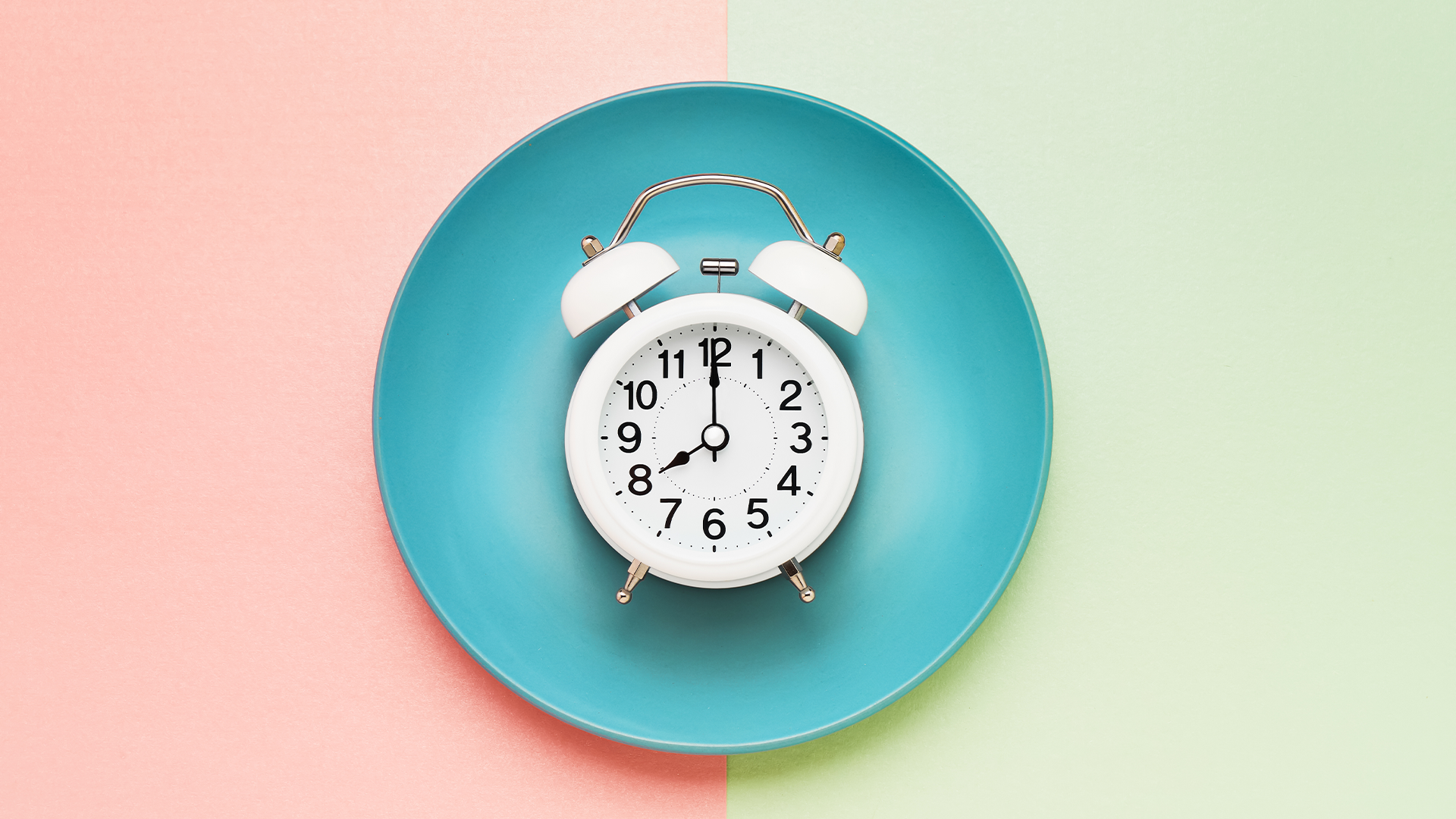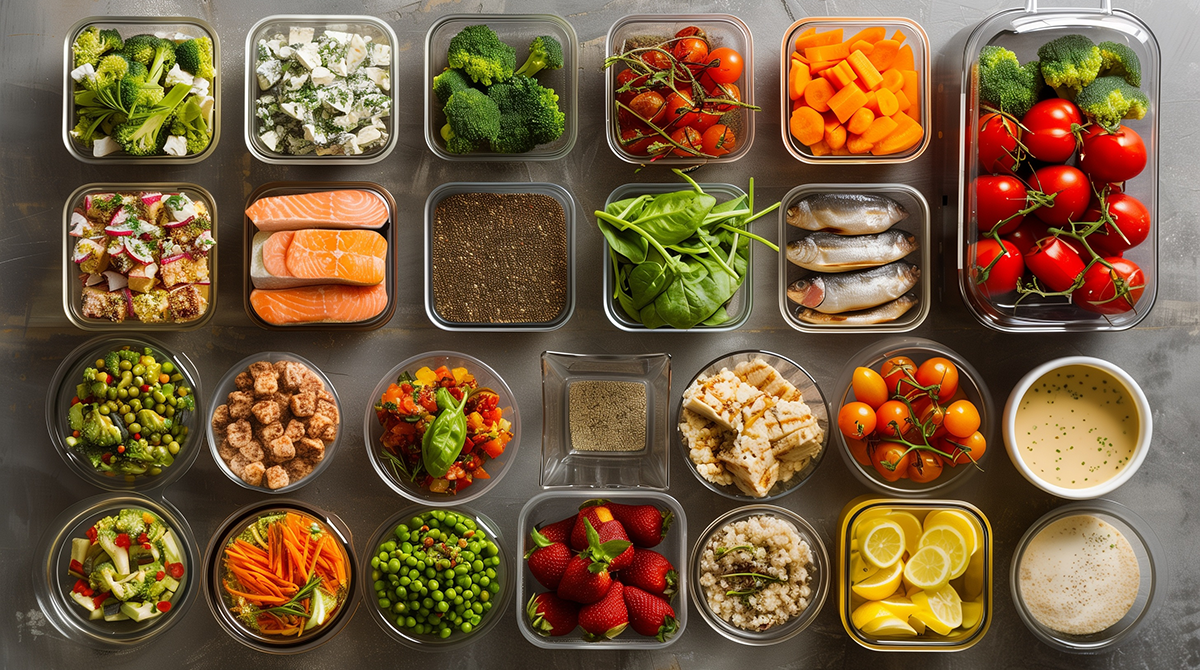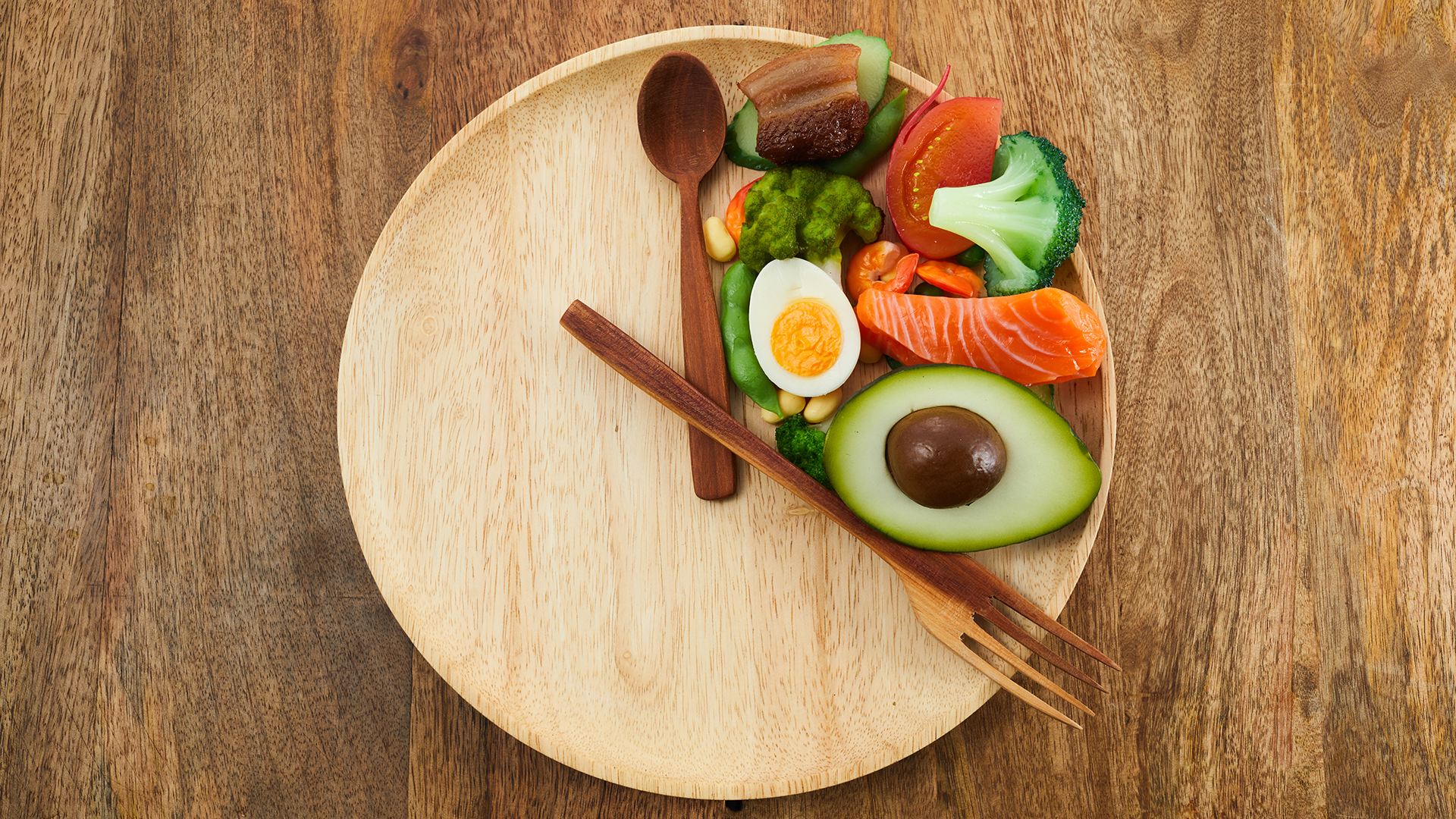Things you’ll learn in this blog |
If you’re looking for a new fasting style or just want to try a new diet method – we’ve got you covered. Maybe you’ve been looking at a wide range of diets and fasting techniques, and you want a simple, less restrictive yet, effective way to improve your health and lose weight. The popular 16/8 intermittent fasting technique might be the one for you.
Here’s a beginner's guide on what 16/8 intermittent fasting is, how to do it and the pros and cons.
Intermittent fasting has become an increasingly popular fasting method. The premise of the fast is to go for extended periods without eating. This is followed by a period where you would eat normally.
Simply put, intermittent fasting is an eating pattern where people limit their food consumption to certain hours of the day in order to achieve health and lifestyle goals.
The fasting style tends to mirror traditional eating patterns. Scientifically, it works by extending the period your body has burned through the calories consumed during your last meal and begins burning fat.
But, before we get into 16/8 intermittent fasting and how to do it, let’s delve into what fasting actually is.
What is fasting?
So what is fasting, in general terms?
Fasting can be defined as one abstaining from food, drink or both. People often fast for health, ritualistic, religious, or ethical purposes.
The abstention from food, drink or both can range from being; complete or partial and/or an extended period or a short duration.
Simply put, fasting requires you to stop eating, drinking or both, completely or almost completely, for a stretch of time. A typical fast usually lasts from 12 to 24 hours, but there is a range of fasting techniques that have become more popular over the years.
With some fasting plans, you may be allowed water, tea, coffee or even a small amount of food during the “fasting period.”
People have practiced fasting for thousands of years, which has a major significance to culture and tradition in many religions and communities worldwide. While there are more ancient and traditional ways to fast, there are now various ways to fast in this new age.
Fasting has been promoted by physicians, healthcare professionals, cultural leaders and groups to benefit the mind, body, soul and spirit. The practice has allowed individuals to express social, ethical, or political stances and personally contribute to what they believe in.
The practice of fasting came naturally to our ancestors, not out of choice, but due to their being less amounts of food and not being able to eat as frequently. They would have only eaten when they searched and could find food by hunting or foraging.

However, we live in a time when food production has evolved on a mass scale, giving many people a wide variety of food options with a vast amount made readily available. Many people in this time choose to fast on their own will and abstain from food, drink or both, even if they have easy access to it.
Alternatively, there is also intermittent fasting, which has become a popular form of fasting in recent years.
A style of fasting that is increasingly becoming popular is 16/8 intermittent fasting. People who advocate for this method of fasting claim that it’s an easy and sustainable way to improve your health or assist your weight loss journey.
This article explains what is 16/8 intermittent fasting is and its benefits and downsides to help you decide whether it’s for you.
What is 16/8 intermittent fasting?
16/8 intermittent fasting is a specific type of time-restricted eating method. The 16/8 fasting method requires individuals to abstain from any caloric intake for 16 hours, and then they are able to eat freely for 8 hours.
Most individuals aim to achieve better health or lose weight with this method 16/8 diet. Some people are just intrigued and want to explore different eating methods.
If you choose to go on the 16/8 diet, you will spend 16 hours of each day consuming nothing. However, some people do choose to have unsweetened beverages like water, coffee, and tea during the 16 hours. The remaining eight-hour window is when you can let loose and eat all of your meals and snacks.
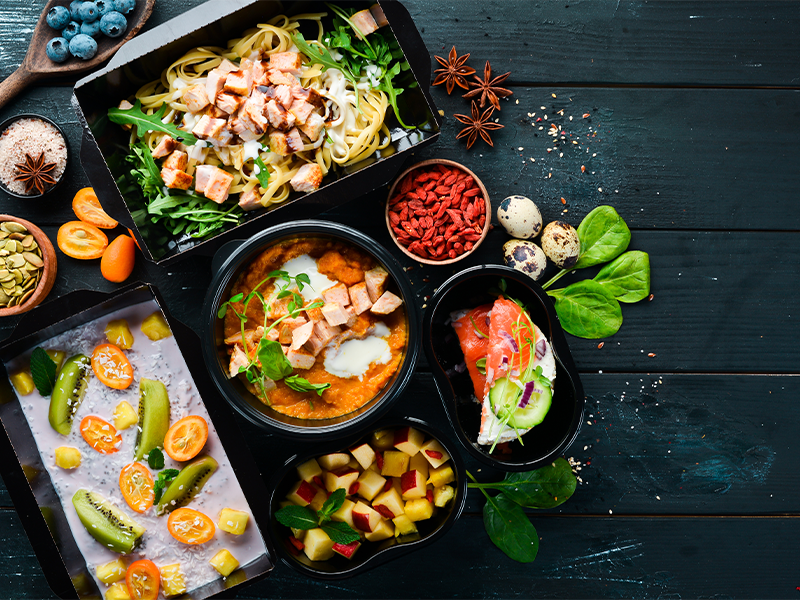
This fasting method has grown rapidly among individuals looking to lose weight and burn fat. Research has also shown that 16/8 intermittent fasting improves blood sugar control and enhances longevity.
16/8 intermittent fasting works well for those who do not like to follow super strict diets and want something that is easy to follow, therefore, find it less difficult to stick to.
Many individuals who have done the 16/8 diet claim that the fasting method has provided them with great results without requiring too much effort. This fasting method is generally considered flexible, less restrictive and easier to ascertain – meaning it works and fits in with most lifestyles in comparison to strict diets.
How do you do 16/8 intermittent fasting?
Now that we’ve got a good understanding of what fasting is, and more specifically, what 16/8 intermittent fasting is, we’re going to break down how to put the knowledge into practice.
The practice of 16/8 intermittent fasting involves individuals limiting their intake of foods and calorie-containing beverages to 8 hours per day. This means abstaining from food for 16 hours, though you can still drink water and other no-calorie beverages.
Most people carry out the diet by starting to fast at night time, not consuming breakfast, and eating their first meal in the middle of the day.
While no foods are off limits during that time, a lot of people follow the keto diet at mealtimes to supercharge their weight loss. If not, most individuals still eat healthily and refrain from eating fast foods and super calorific and high fat-based foods during the 8 hours.
To maintain a healthy diet, it is recommended that you have healthy meals. You could eat meals such as; stuffed sweet potatoes, a pasta salad or grain bowls.
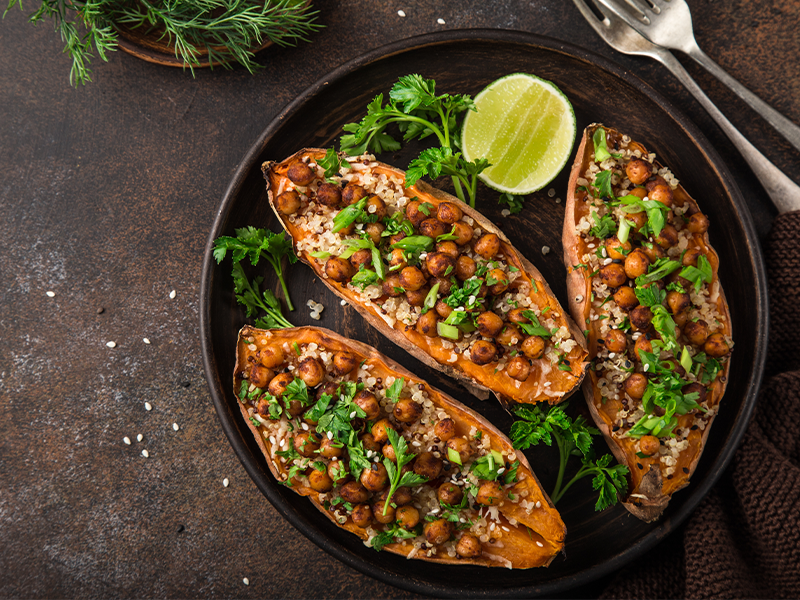
Additionally, you can eat healthy snacks such as; fruits, nuts, vegetables or whole-grain crackers with hummus.
You can alter the diet to your liking, repeating the cycle as frequently as you’d like. Some people opt to take part in the fast just once or twice per week, while others may do it every day.
When is the best time to eat on the 16/8 diet?
You can choose when is the best time to fast depending on your lifestyle and commitments.
To start, you could analyze what time would be the easiest for you to fast for the 16 hours and then eat freely for the 8 hours.
Alternatively, you can begin by picking an 8-hour window and limit your food intake to that time span.
Popular 16/8 time windows include
- 7am - 3pm (8 hours)
- 9am- 5pm (8 hours)
- 12pm- 8pm (8 hours)
- 2pm- 10pm (8 hours)
Most people prefer to eat between noon and 8 pm, since a lot of your fasting time is taken up by your sleep and when you just wake up, making it easier to skip breakfast. By doing it in this way, you may find that you’re still able to eat a good lunch and dinner, along with snacks throughout the day.
You also have other individuals who prioritize a nice breakfast, opting to eat between 9 am and 5 pm, which allows plenty of time for a healthy breakfast around 9 am. By doing it in this way, you can have a standard lunch around noon and an early dinner at around 4:30 pm before your fast commences.
However, you can experiment and pick the time frame that best fits your lifestyle, commitments and your schedule.
It may be a good idea to set timers at the beginning and the end of your eating window period to remind you when to start and stop eating.
What foods should you eat during the 16/8 diet?
Foods that will help maximize your health benefits are essential during the 16/8 intermittent fast. Although it’s easy to binge whatever is in front of you after not eating for many hours, sticking to nutritious whole foods and drinks will keep you on track of your health goals.
Here’s a list of foods you can use during your 16/8 diet, which will add to your healthy diet;
- Fruits: apples, berries, peaches, oranges, , pears, bananas, tomatoes, etc.
- Veggies: broccoli, brussels sprouts, cauliflower, cucumbers, spinach, kale etc.
- Whole grains: barley, quinoa, rice, buckwheat, oats, etc.
- Healthy fats: olive oil and avocados
- Protein sources: eggs, fish, legumes, meat, poultry, nuts, seeds, etc.
Drinking calorie-free beverages like water and unsweetened tea and coffee, while fasting, can help to keep you hydrated.
Here are some healthy foods that you can eat during your eating window;
1. Water
Ok, you got us and you’re thinking what everyone else is thinking – “Water isn’t food”.
Nevertheless, it’s still essential to the human diet. Our bodies comprise around 60% water. While it’s recommended that the average person should drink eight 8-ounce (237 mL) glasses of water per day, most people aim to drink more.

Did you know that water is central to the health of all your major organs? Your mind and body will thank you for drinking water through your intermittent fasting journey.
Water can help you improve your physical performance, increase your energy levels, enhance your brain function, and relieve constipation and gut-related issues.
According to your sex, height, weight, activity level, and climate, the amount of water you should drink may vary. However, a clever tip to measure whether you’re consuming enough water is by the color of your urine. A consistent pale yellow color is the aim!
Dark yellow urine suggests you may be dehydrated, which can bring side effects such as; headaches, fatigue, and lightheadedness. Being dehydrated while fasting can make your pee very dark.
If you struggle to drink water and you need to add some flavor, a squeeze of lemon juice, a cucumber slice, or even some mint leaves may do you good.
2. Avocado
Although Avocado is the highest-calorie fruit, it works as a plus when you’re fasting. An avocado's high unsaturated fat content will keep you full, more than a banana or apple would.
According to research from 2017, unsaturated fats assist your body in keeping full, even if you don’t necessarily feel full. The science behind it is that your body sends signals that it has had enough food and doesn’t need to go into starvation mode (holding onto calories you’ve consumed).
Unsaturated fats drag out these signals, so you will be fuller than you think – even if you feel hungry.
3. Fish and seafood
It’s nice to have a variety to your diet, and if you enjoy fish and seafood, this will be easy for you.
Fish and seafood are known for being rich in healthy fats and protein. Fish often contains ample amounts of vitamin D, which helps regulate the amount of calcium and phosphate in the body.
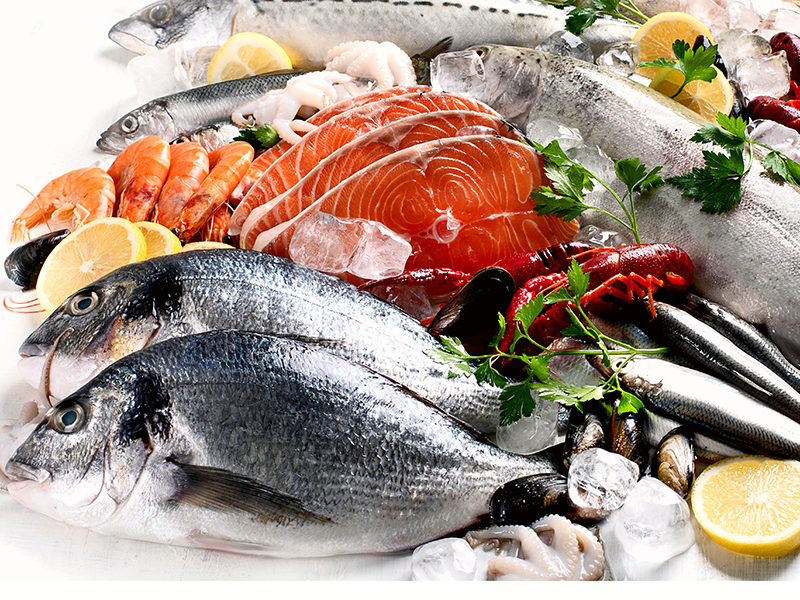
There are a variety of dishes you could make including fish and seafood, so you have surplus options in which of those you want to opt for.
Fish is also a good food that you can cook in many different ways, giving you variety.
4. Vegetables
Fiber-rich vegetables like broccoli, cauliflower and brussels sprouts are crucial to have when you can eat.
During your eating window, fiber-rich foods are a definite yes! It will help to prevent you from becoming constipated and regulates your bowel movements. It will allow you to maintain healthy bowels and helps to control blood sugar levels.
Research suggests that fiber can give you a feeling of fullness, which will come in handy if you can’t eat for 16 hours.
Vegetables such as; broccoli, cauliflower, cabbage, brussels sprouts, bok choy, and kale can also help reduce your cancer risk.
5. Potatoes
Potatoes are another food where it’s easy to feel full without eating much. They’re rich in vitamin C, which is an excellent antioxidant.
A ’90s study revealed that potatoes were a life-saving food source in early times as vitamin C prevented scurvy. Potatoes contain potassium – an electrolyte that aids in the workings of our heart, muscles, and nervous system.
Aside from the nutrients, potatoes would be good to have so you feel full for a lengthy period of time.
6. Beans and legumes
These carb-filled foods will help you along your intermittent fasting journey. During your eating window, having low-calorie, carb-loaded foods such as beans and legumes will benefit you. They will supply you with energy and get you going for the day ahead. This can keep you perked up and feeling energized during your fasting hours.
Additionally, research suggests that foods like chickpeas, black beans, peas, and lentils help decrease body weight.
7. Probiotics
Gut critters like being consistently fed, and they’re not happy when starved. When your gut isn’t healthy and is filled with nutrients consistently, it can cause you to have some unpleasant side effects, such as constipation.
To eradicate having an upset stomach, you can add probiotic-rich foods such as kefir, kombucha, and sauerkraut to your diet.
8. Berries
Are you a fan of smoothies? What’s better than a berry one!
Blueberries, raspberries, strawberries and blackberries are great to have while you’re intermittent fasting. These staples are loaded with antioxidants, are high in fiber and can help to improve your blood sugar and insulin response.
Research in animal and human studies also suggests that berries may protect against cancer of the esophagus, mouth, breast, and colon.
9. Eggs
Eggs are so simple and quick to make, yet a super effective high-protein-based food. One large egg provides 6.24 grams of protein. Eggs also are high in cholesterol (high-density lipoprotein), but don't adversely affect your blood cholesterol.
Whole eggs are a great source of choline – with a single egg containing more than 100 mg. Choline is a nutrient that is used to build cell membranes and helps with brain function.
Feeding your body protein-rich food is important to keep full and help maintain your muscle mass, especially when you’re not eating as much as you normally would.
10. Nuts
Good fats are super beneficial to your diet, and nuts have a lot of them! Although nuts may be higher in calories than other snacks, they’re loaded with vitamins and minerals that the body needs.
11. Whole grains
Don’t be misled – eating some carbs can be great for your diet. Whole grains are a great source of fiber and protein, so eating adding them to your fasting diet will go a long way.
Whole grains that you could include in your diet are; farro, bulgur, spelt, kamut, amaranth, millet, sorghum, or freekeh.
What are the benefits of 16/8 intermittent fasting?
There are major benefits of 16/8 intermittent fasting. These include;
- Improved fat burning
- Improved weight loss
- Reduced risk of cancer
- Optimised hormone levels
- Improved cholesterol levels
- Improved body composition
- Better blood sugar regulation
- Reduced risk of heart diseases
- Increased activation of stem cells
- Better gut health
- Improved cognition
What are the downsides of 16/8 fasting?
It’s important to note that there are downsides od 16/8 intermittent tasting.
The diet can cause;
- Weight gain
- Headaches, dizziness, and nausea
- Disordered eating
- Low energy
- High-stress hormones
- Hormonal and fertility problems
It would be best to avoid ultra-processed foods if you take on this fasting method. This includes products like; packaged snacks, deep-fried food, sugary drinks, and most frozen meals. These can counteract the benefits of 16/8 intermittent fasting and harm your health.
If you’re looking to lose weight, these foods and drinks can have an adverse affect when taking on this diet – and can actually make you gain weight.
So should you do the 16/8 fasting diet?
Ultimately, this fasting style can be great for you. You can give it a try and see if it works out and suits your lifestyle better than previous diets. You are now fully equipped to start, and can always come back to this page for reference. It can help you restrict the amount of food you eat, and there are many benefits to eating within a given timeframe (as well as some downsides).
If your aim is to shed some weight during this process, PhenQ’s weight loss aid offers a unique formula that targets key areas to help you feel less hungry, which can aid an intermittent fasting diet.
Say you’re planning to start your eating window in the morning, having PhenQ with your breakfast. The products help to suppress your appetite, making it easier to fast. It’s a great way to help manage any unhealthy cravings and will support your intermittent fasting journey.
PhenQ’s weight loss aid also can increase your mood and energy levels, which you may struggle with during a fast.
It’s a double bonus – a weight loss aid, but a product that can make you feel good during rough fasting days.
However, PhenQ’s weight loss aid is not a quick fix - meaning you’re still required to eat well and keep up a good exercise regime. The products will help burn stored fat and assist you with having a more controlled appetite.
To find out more about how PhenQ can help you lose weight, have a look here.
